TARI Dakawa to generate rice seed with preferable market qualities and resilient to impacts of climate change for Tanzanian smallholder farmers
- 22nd April, 2022 14:10
- By NGABO.PAMBA
- News
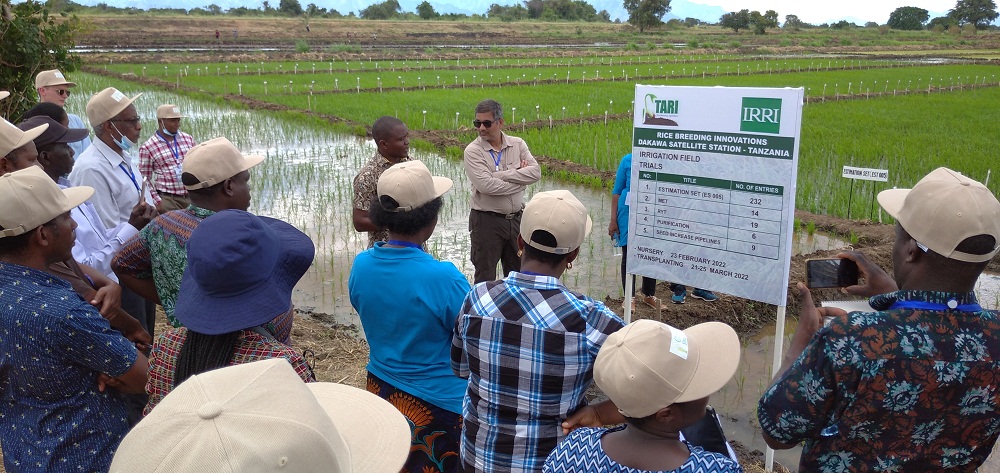
“There is an ongoing research done in collaboration between the Tanzania Agricultural Research Institute (TARI), Dakawa centre and the International Rice Research Institute (IRRI), which is a breeding program focused on addressing Tanzanian smallholder rice farmers and other stakeholders’ concerns of good quality rice that fetch market demands and tolerant to drought, salinity, submergence (flooding) and diseases”, said Dr. Jerome Mghase, the TARI Dakawa centre manager.
Dr. Mghase said so as the delegates from IRRI, the Sokoine University of Agriculture (SUA), and the University of Copenhagen, Denmark recently had visited the centre – which also hosts the IRRI satellite station in Tanzania - to observe the performance of the trials set on-station based on the market segments.
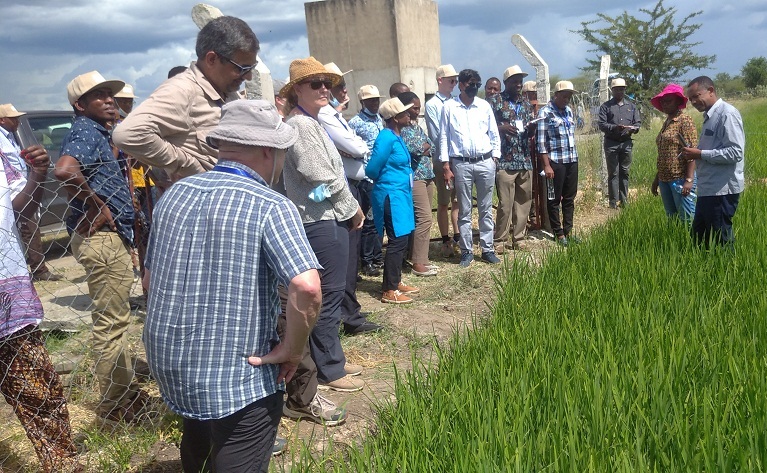
Plate 1: Dr. Jerome Mghase introduces to the guests who visited the centre the rice research conducted in collaboration between TARI Dakawa and the International Research Institute. Credit: Ngabo
Elaborating on the concept of market segments as related to the ongoing breeding program, Dr. Rosemary Muriro, the IRRI Tanzania and Kenya Plant Breeding Scientist said that the trials are set on rain-fed and irrigated ecologies taking into account market demands divided into two segments namely the direct-seeded, early duration, long slender soft grain rice for rain-fed areas market segment, and the transplanted medium duration, long slender, soft grain type for irrigated areas, respectively. The former aims to generate high-yielding rice varieties drought tolerant in rain-fed conditions, early maturing and with other market qualities whilst the latter intends to produce high-yielding varieties with medium maturity period that fetch markets grown under irrigation.
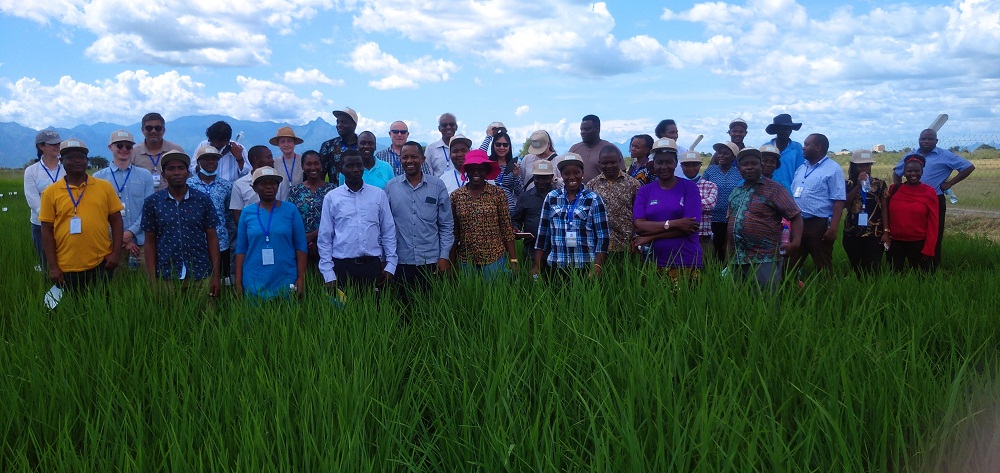
Plate 2: Dr. Rosemary Muriro (with a maroon hat in front) in a group photo with a delegation visited trials set in rain-fed conditions. Credit: Ngabo
Similarly, Mr. Barnabas Sitta, the TARI Dakawa Plant Breeder, said that upon completion of this collaborative research, rice varieties with tolerances to drought, salinity, and rice diseases particularly rice blast and rice yellow mottle virus, will be produced and we expect smallholder farmers will have access to the seeds. The varieties must have merits that suppress SUPA, TDX306, and other popular landraces. The target here is to come up with marketable rice varieties, resilient to climate change effects available to Tanzanian smallholder farmers.
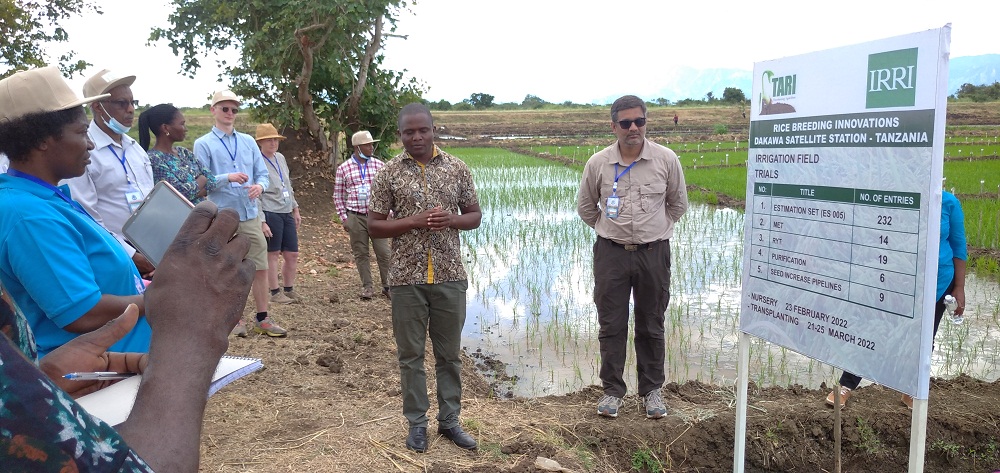
Plate 3: Mr. Barnabas Sitta, a plant breeder based at TARI Dakawa centre explains to the delegation the trials set under irrigated ecology. Credit: Ngabo
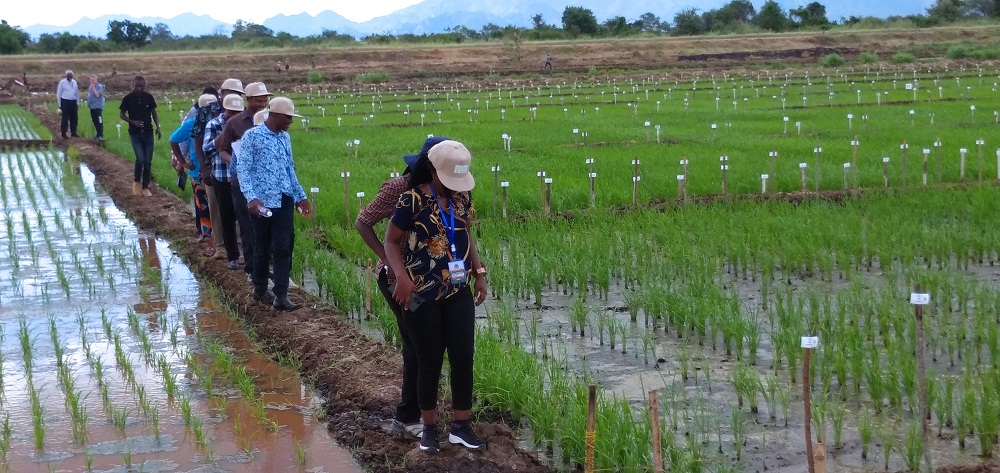
Plate 4: A team of researchers from SUA, IRRI, and TARI observes the performance of the trials under irrigation conditions set at the Dakawa Irrigation Scheme. Credit: Ngabo
When inquired as to whether benefited from research, Mr. Nassibu Katoto Omari and Muganga Makunja, the progressive rice farmers, who have long-time close interactions with TARI Dakawa and IRRI, and carry out their rice farming in the Dakawa Irrigation Scheme, Mvomero District, Morogoro, respond appreciating outstanding endeavor done by research as its outputs that reached them highly improved their livelihoods. They attribute their success to the use of a popular SARO 5 (TXD306) (an improved rice seed) and the adoption of recommended agronomic packages and are expressing openness to up-taking technologies from research beneficial to them in the future.
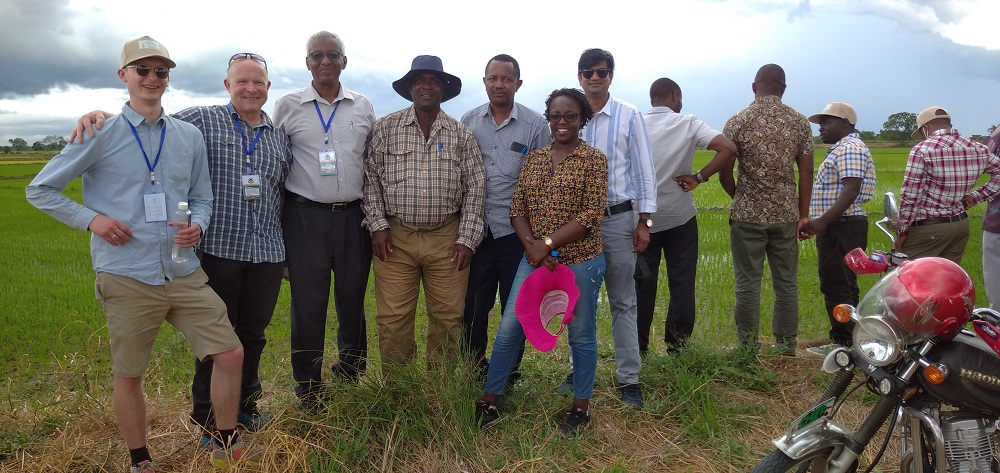
Plate 5: Mr. Nassibu Katoto Omari (put on a blue hat) poses for a group photo as the delegation from TARI, SUA, University of Copenhagen and IRRI recently visits his rice field at Dakawa, Mvomero District, Morogoro. Credit: Ngabo
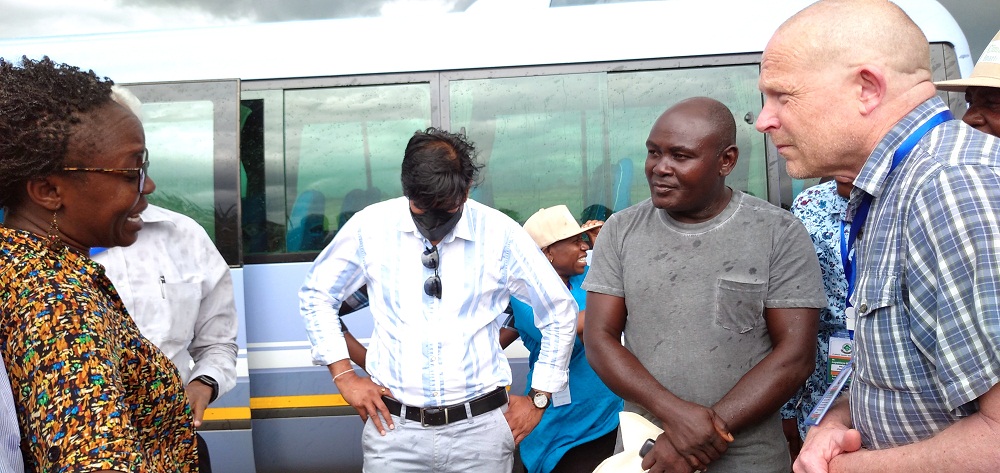
Plate 6: Mr. Muganga Makunja (put on a grey t-shirt), another progressive rice farmer at Dakawa tells the delegation his success story derived from rice production when recently visited. Credit: Ngabo

